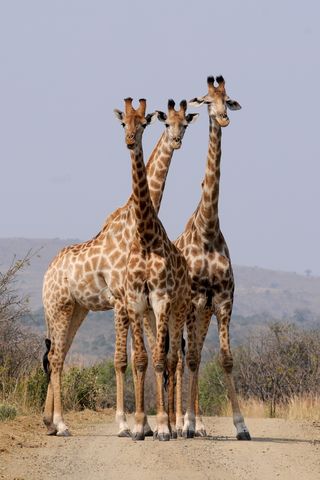Trust
Who Can You Trust?
Out in the wild or back in the office, you need to know who's trustworthy.
Posted July 29, 2019

When you need a warning—about a colleague, a friend, a bad deal—who do you talk to? Maybe a relative or a good friend? Which of those sources gives you the best advice, even if you don’t want to hear it? In essence, who you can trust?
I was recently on a safari in Botswana and learned firsthand that even in the wild, you need to know who to trust.
One of the joys of being in Africa is the sounds, from the night roars of lions, nighttime clicking of reed frogs, and frequent calls of jacana birds. Big animals like hippos and elephants splash through water, and if you listen carefully, you can hear giraffes ripping leaves from a Mopani tree.
Also, of course, animals warn one another of predators. Giraffes can spot a leopard or lion in the distance and will all turn the same direction, alerting other animals of danger far away. Impalas likewise stand at attention, facing the threat and then, in uncanny synchronized motion, bound away in the opposite direction.
Then I learned that some warning calls are more accurate and should be taken more seriously than others. A francolin, which looks a little like a small pheasant, will begin shrieking its alarm call, and a baboon will make its terrifying bark when it is in distress. But then, after the lion has left or the danger has passed, the baboon stops barking, while the francolin will continue. In fact, the bird may continue its alarm call for a couple of hours, long after the danger is over.

So, if you were an impala or zebra wishing to avoid becoming a midnight snack for a hungry mother lion, who would you trust? If you trust the francolin, you’d be on alert for hours at a time, which means lost energy just staying on guard. If you listen to the baboon, though, you could relax a bit after she quits the alarm barking.
All of this got me thinking about who we trust in our human lives. As we gain experience with people at work, in our friendship circles, we begin to learn who’s likely to exaggerate or bring more drama into a situation than perhaps it deserves.
Our “francolin buddies” may be friendly and nice to work with, but their frequent warning calls will keep us on alert, unsettled, and perhaps unfocused. Our “baboon pals” may sometimes be unpleasant to work with, but in the end, they may be more willing to provide accurate, even if unwelcome, assessments of what may be dangerous.
Much as I may dislike baboons in the wild, now I know I’d rather heed their warning than listen to the more nagging francolins.


